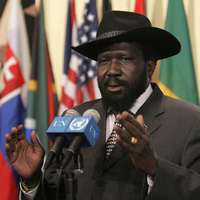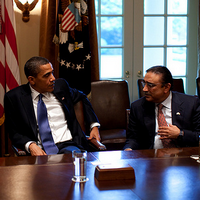
Recent Iranian saber rattling about closing the Strait of Hormuz is yet another reason for the U.S. to look north to Canada for oil imports. Military confrontation or a perceived threat of it in the strait — the route for almost 17 million barrels of oil daily — would wreak havoc on global oil supplies. The effects for the United States would be particularly severe: 75 percent of oil from Saudi Arabia, which at 12 percent of net U.S. imports of crude oil and petroleum products is our second-largest supplier, passes through this strategic waterway. Occasional threats to global oil […]



